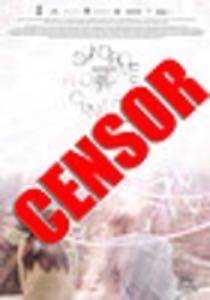The United Nations does a lot of good in this world, as far as I’m concerned. If nothing else, it gets representatives of enemy nations in the same building, sometimes in the same room. However, the organization is sometimes troubled by a desire to be so “fair” that it elects Libya and Thailand to the U.N. Human Rights Council.

Its latest move, however, goes far beyond the pale of common sense. It has passed a resolution outlawing “defamation” of religion. That means that wherever U.N. writ runs, neither a person nor an organization nor a representative of the press may say anything negative about a religion, part of a religion, an offshoot of a religion or a representative or member of a religion.
This resolution was “proposed by Pakistan on behalf of Islamic states, with a vote of 23 states in favor and 11 against, with 13 abstentions.”
If you believe, as the United Nations allegedly does, that free speech is not a political right but a human right, you will be horrified by this.
“Everyone has the right to freedom of opinion and expression; this right includes freedom to hold opinions without interference and to seek, receive and impart information and ideas through any media and regardless of frontiers.”
If you’re all for limits on speech that you dislike, you would do well to remember that this type of resolution is a textbook case of “slippery slope.” If you can do it to someone you hate, it takes only a slight tip of the scale for them to do it to you.
Pakistan has shut off the web out of fear it will see a picture of Mohammed. Either out of fear of Everybody Draw Mohammed Day, or using that event as an excuse, the Pakistani government has blocked the following at least: Facebook, Flickr, Wikipedia, and YouTube. Apparently Twitter is still partially functional, but blocked in certain parts of the country. I imagine it will be banned everywhere in short order. Everybody Draw Mohammed day started as a joke in a cartoon, which the cartoonist backed down from, but others went forward with. It is supposedly a celebration of free speech. It has purportedly drawn a lot of outright racist crap, but I suppose that’s what makes it free speech as opposed to sanctioned speech. Many Pakistanis are outraged more at the censorship than at any possible blasphemy. I guess they figure that they, and their faith, are proof against the deadly power of amateur cartooning. Maybe the government should take a page from their book instead of tear pages out of the Koran to cover themselves with.
Tunisian citizens protest online crackdown. Thousands of Tunisians joined an online anti-censorship campaign, posting on Facebook, Twitter and blogs and posting photos and videos on the topic. “Even some radio and TV shows slipped a word about it, which is a first: The silent crowd is not so silent anymore.” Tomorrow, organizers are taking the protest offline in cities around the world, including Tunis.
Tunisia blocks Skype. (This from an email from ReadWriteWeb France editor, Fabrice Epelboin.) Possibly in relationship to the anti-censorship activities above, Tunisia has blocked the VOIP site, though not others.
Facebook refuses to remove Holocaust denial groups. Facebook has refused to ban holocaust denier groups from using its service. That seems odd and a breaking of its terms of service, but is a private company and has the right to decide what it does. It can also be boycotted by users if they do not respond to what those users want. If people can force Facebook’s hand, good I suppose. Talk of suing Facebook seems off-base though.
Thailand attacks protesters. Thailand sent in the army to break up the camp of the Red Shirt protesters, many of whom use electronic media to present their case against the current government. Several of the leaders surrendered to avoid more bloodshed.
Internet unblocked in Uighur area but webmasters and bloggers remain in jail. After being shut down or blocked for almost a year, China has apparently unblocked Internet access in the Xinjiang Uyghur Autonomous Region of China. The webmasters, bloggers and journalists arrested in the crackdown of July 2009, however, remain jailed. These include “Memet Turghun Abdulla, a photographer who published an article online about an attack on Uyghur factory workers believed to have sparked the July 2009 unrest; Gheyret Niyaz, a journalist who was detained after talking to foreign media about the unrest; Dilshat Parhat, who co-founded the Uyghur-run website Diyarim; Obulkasim, an employee of Diyarim; Nureli, who founded the Uyghur website Selkin; and website supervisor Muhemmet.”
Vietnam upholds sentences against blogger, other dissidents. Nguyen Tien Trung, a blogger and computer technician, did not appeal his sentence. He’s jailed for speaking out against the regime. The court upheld attorney and businessman Le Cong Dinh’s five-year sentence and businessman Tran Huynh Duy Thuc’s 16-year sentence. The five-year term of Le Thang Long was reduce to three-and-a-half after he “admitted” his guilt.
Top photo by Arthit Suriyawongkul.

















